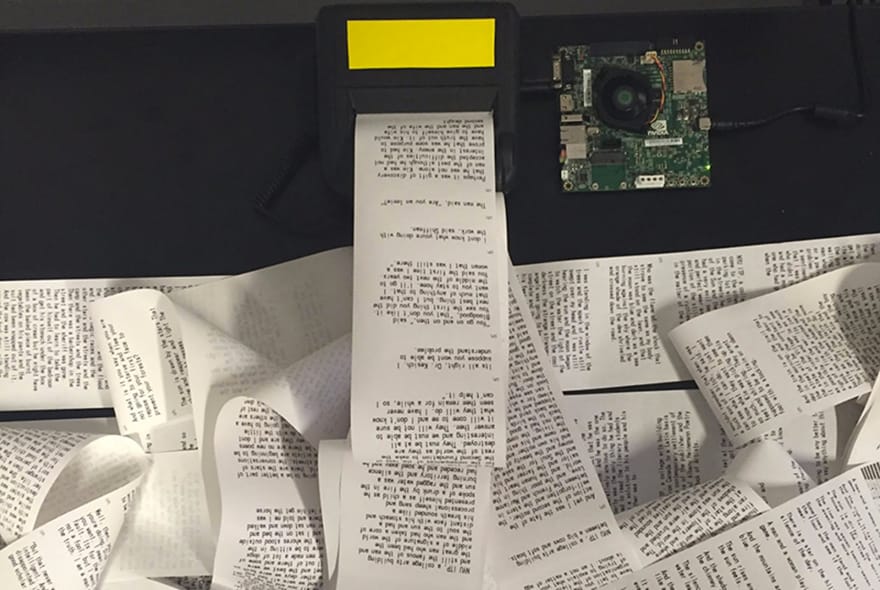Short sci-fi film written by an AI is absurdly human

Artificial intelligence is a common topic explored within the science-fiction genre. Sunspring, a new sci-fi short, instead of using the theme of artificial intelligence in its narrative, used AI to actually produce the narrative in the first place. The film, which had its online debut on Ars, had its screenplay written by an AI which goes by the name of ‘Benjamin‘. The film was submitted as part of the 48-Hour Film Challenge at the Sci-Fi London film festival by Oscar Sharp, a BAFTA-nominated filmmaker and Ross Goodwin, a creative technologist and former Obama administration ghostwriter.
Sunspring comes to life through the acting and production. The screenplay is sufficiently vague and nonsensical to leave a lot of room for interpretation. The actors, Elisabeth Gray, Humphrey Ker and Silicon Valley‘s Thomas Middleditch give the screenplay an entirely new life, acting out a love triangle plagued with complex dynamics of hurt and uncertainty. As Sharp tells Ars, in reference to the fact that a love triangle seemed so obvious to them, despite it not in any way being explicit in the text, “Maybe what we’re learning here is that because of the average movie, the corpus of what we’ve watched, all of us have been following that pattern and tediously so…We are trained to see it, and to see it when it has not yet been imposed”.
there is something uncanny about an AI reproducing uncertainty and anxiety
Something which sticks out in the writing of the screenplay is the continued assertion of “I don’t know” throughout the piece, said by every character. This uncertainty, or inability to understand what’s happening, is something Sharp says is in a way inherent to a speculative genre, where characters are “…questioning the environment, questioning what’s in front of them. There’s a pattern in sci-fi movies of characters trying to understand the environment.” Considering this screenplay came from an AI which was informed by other sci-fi material, this larger connection to the genre is a clear link to make. However, there is something distinctly uncanny about having an AI so powerfully latch onto this term of uncertainty and anxiety in the face of having to produce a unique creative work—a feeling all creators can in some way relate to.
Our interest in the ability for AI to be creative, a quality so closely associated with sentience, continues to play out in many different ways. There’s been an especially massive amount of inroads made with algorithmic music composition. However, the complexity of language and story production is incredibly difficult for AI to accurately emulate. Although this has acted as barrier to developing algorithmic story production, Alexis Kirke, a filmmaker and composer who has also dabbled in screenwriting algorithms, says, “The truth is, we’re not as good at doing this as we are at using computers to write music. And this has put many researchers off. However, unless we begin to take steps in this direction, how will we ever make progress?”
Sunspring is a reminder of how strong our desire is for making sense of things that are foreign to us, like artificial intelligence, by making them seem more familiar. Despite the fact that, as Sharp notes, we are prone to reproducing patterns we are used to, an AI like Benjamin, allows us to imagine new, different, and unexpected modes of creative production of the future.
Header image is a still from the film. Be sure to check out Sunspring, and keep track of Benjamin’s work through its website.




